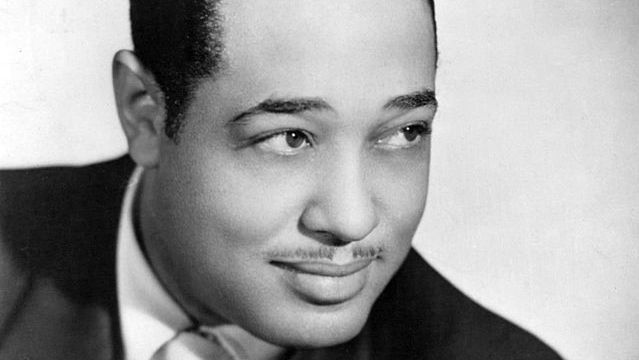Edward Kennedy “Duke” Ellington, born on April 29, 1899, in Washington, D.C., was a maestro whose name became synonymous with jazz itself. His remarkable career spanned decades, leaving an indelible mark on the world of music and shaping the landscape of jazz like few others.
Ellington’s journey into music began early, influenced by his middle-class upbringing in a supportive family environment. His parents, James Edward Ellington and Daisy Kennedy Ellington, encouraged his musical pursuits, and he began studying piano at the age of seven. Though he showed talent from the start, it was his passion and dedication that truly set him apart.
In his youth, Ellington immersed himself in the vibrant cultural scene of Washington, D.C. He soaked in the sounds of ragtime, blues, and early jazz, honing his skills as a pianist and composer. By his late teens, he was performing professionally and gaining recognition for his unique style and improvisational prowess.
In 1923, Ellington and his band, the Washingtonians, moved to New York City, where they quickly became a sensation in Harlem’s thriving jazz scene. It was here that Ellington’s genius as a bandleader and composer began to shine. His compositions were innovative, blending elements of jazz, blues, classical, and popular music into a sound that was distinctly his own.
The 1930s marked a period of unparalleled success for Ellington and his orchestra, which became known as the Duke Ellington Orchestra. With hits like “Mood Indigo,” “Sophisticated Lady,” and “Take the ‘A’ Train,” Ellington solidified his reputation as one of the greatest composers and bandleaders of his time. His performances at the Cotton Club, a famed Harlem nightclub, brought jazz to new heights of popularity and sophistication.
Beyond his musical achievements, Ellington was a trailblazer for racial equality in the arts. At a time when segregation was rampant, he broke down barriers, performing for integrated audiences and employing musicians of all races in his orchestra. His commitment to excellence and inclusivity made him a symbol of cultural progress and resilience.
Ellington’s influence extended far beyond the world of jazz. He composed music for films, theater productions, and ballets, earning him critical acclaim and multiple awards, including several Grammy Awards and the Presidential Medal of Freedom. His groundbreaking compositions, such as “Black, Brown, and Beige” and “The Far East Suite,” explored themes of race, identity, and spirituality, pushing the boundaries of jazz and elevating it to an art form of unparalleled depth and complexity.
As he entered his later years, Ellington continued to perform and compose with undiminished passion and creativity. Even as his health declined, he remained dedicated to his craft, leaving behind a vast legacy of recordings, compositions, and performances that continue to inspire musicians and audiences around the world.
Duke Ellington passed away on May 24, 1974, but his music lives on as a testament to the enduring power of creativity, innovation, and the boundless spirit of jazz. His legacy remains a guiding light for generations of musicians, reminding us all to “keep on steppin'” and embrace the beauty and joy of life through music.


No responses yet